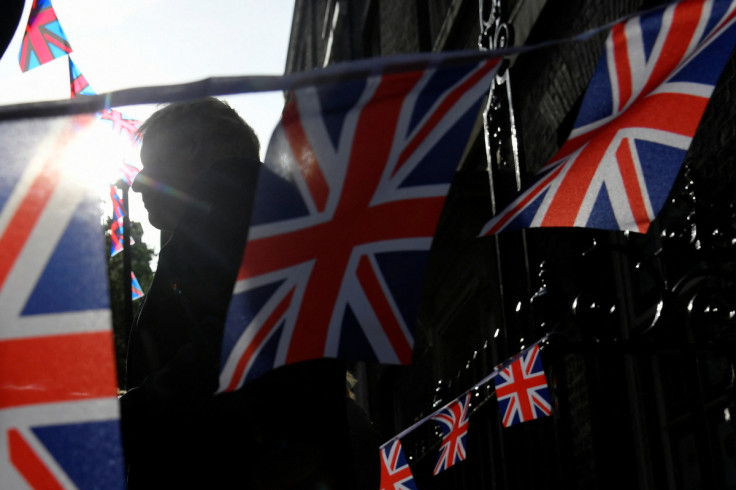More than half of UK businesses say customers are spending less
Recent research has shed light on the shifting trends, indicating a rise in remote work and an increasing preference for second-hand shopping among UK consumers.

The UK cost of living crisis is getting worse, as a growing number of British businesses are witnessing a decline in customer spending and this is prompting many Britons to adopt more cash-conscious lifestyles.
Recent research from the Virgin Media O2 Business Movers Index sheds light on these shifting trends, combining movement data and national polls to capture the changing behaviour of both businesses and consumers.
Amidst ongoing inflation and rising costs, over 40 per cent of British businesses reported that their customers are spending less compared to the first quarter of the year. The impact of these changes was particularly notable among the over-65 age group, with a significant decrease in apparel spending.
The research revealed that people are feeling the pinch as a result of ongoing inflation and rising costs, with more than half (54%) of businesses that noticed changes in spending reporting that their customers are spending less than they did in the first three months of the year (compared to 19% who reported higher spending). Over 65s are driving this shift, with one per cent spending more on apparel and 41 per cent spending less in the last three months.
The research highlighted a shift in retail growth patterns, with older groups initially dominating at the beginning of the year, but young adults aged 18 to 24 taking the lead during the spring. The rise in retail trips among young Britons was evident during the May bank holidays, with increased shopping and leisure activities, including preparations for summer holidays and festivals.
To stretch their budgets further, the report revealed that many consumers turned to second-hand stores, with 44 per cent of the general public engaging in second-hand shopping at least once in the last month. This trend was most prominent among the environmentally conscious Generation Z, with a majority of 18 to 34-year-olds actively embracing second-hand shopping.
The survey revealed a more budget-conscious approach among consumers, leading to reduced spending on non-essential items, such as electronics and clothing. However, food purchases increased, indicating that people prioritise essential necessities.
Only a quarter of workers (24%) commuted more than three months ago, down from two-fifths (40%) in Q1, demonstrating a major seasonal rebalancing towards working from home across the UK. The highest quarterly commute growth was in Edinburgh (4.6%), followed by London (2.8%) and Newcastle (1.6%) – the only three cities in this analysis to experience growth – while the largest declines in commuting occurred in Cambridge (-3.2%) and Glasgow (-2.3%), according to the research.
As economic pressures continue, a major seasonal shift towards remote work became evident, with only 24 per cent of workers commuting, down from 40 per cent in the previous quarter. The rise in remote work was fueled by factors such as rising travel costs and recent heat waves that encouraged employees to stay home. Additionally, environmental concerns influenced commuting choices, particularly among Welsh commuters.
Travel costs were cited as a more relevant issue by more than half of commuters (62%) and by two-thirds of Londoners (66%), as released by the report. Despite the allure of office air conditioning, recent heat waves have had workers avoiding the office, with one-third (33%) of respondents admitting to working from home more frequently to "hide from the heat".
Another key element influencing commuters is environmental concerns, with 37 per cent viewing these as a more relevant issue than three months ago. Welsh commuters are the most environmentally concerned, with 62 per cent choosing their mode of transportation depending on the environmental impact.
Employers increasingly encouraged hybrid working strategies, with only seven per cent of businesses reporting reduced employee productivity due to remote work, compared to 12 per cent in the previous index. Many businesses adopted new technologies to facilitate hybrid work arrangements.
As summer approaches, the report showed that more Britons are opting for UK staycations, taking advantage of the country's pleasant weather. A considerable number of young Britons, particularly those aged 18 to 24, attended festivals and events, impacting businesses positively.
According to the research, public transportation remained a preferred mode of travel for non-work purposes, particularly among cost-conscious and environmentally conscious individuals, despite ongoing strike actions. The Young Britons showed the highest increase in public transportation usage.
Jo Bertram, managing director of Virgin Media O2 Business said: "With ongoing pressures from inflation and the cost-of-living crisis, both the UK public and businesses are adjusting their behaviour in response."
Bertram stressed the importance of trustworthy data in making educated decisions amidst the challenging macroeconomic backdrop.
© Copyright IBTimes 2025. All rights reserved.






















